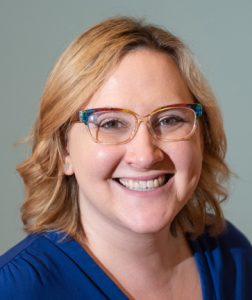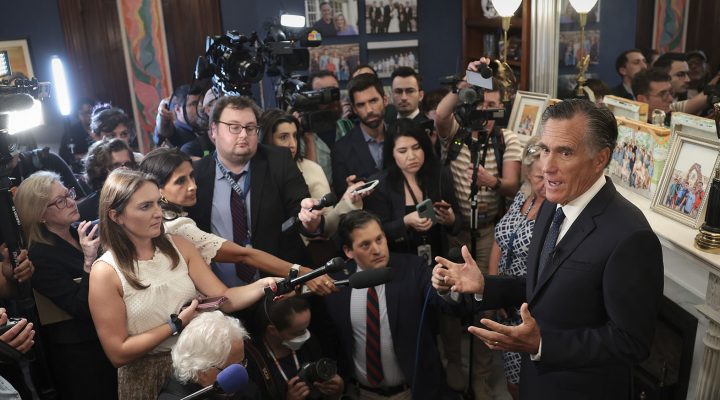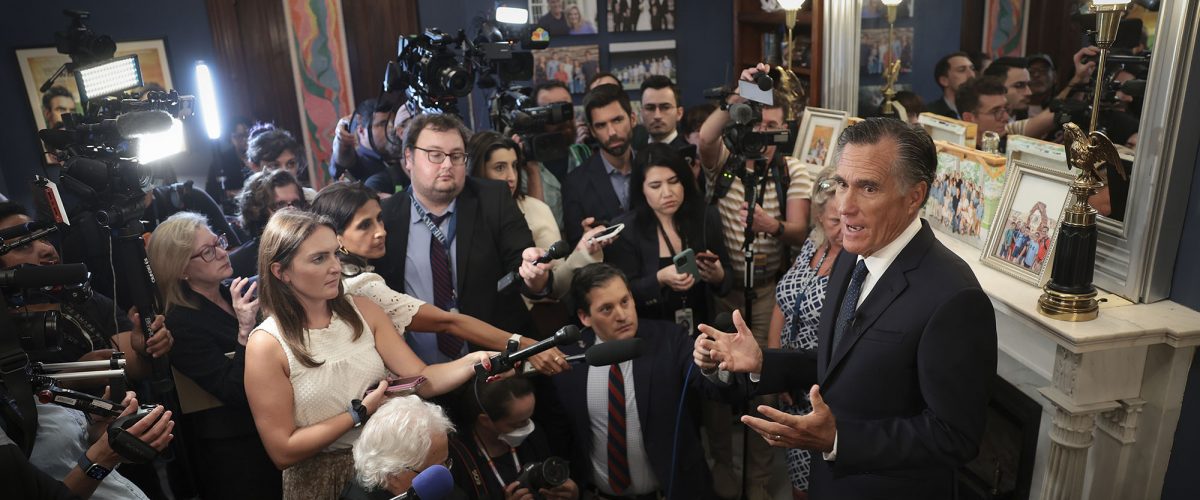Lately, I’ve been thinking about gerontocracy.
It’s hard to miss in our current news. Many debates are raging about President Biden’s age. Sen. Mitch McConnell has had a couple of super public uncomfortable health scares. Both leaders are part of the Silent Generation. There is deep tension around whether either should be in power. Most folks do not want to be ageist in their criticism and personally know seniors who are sharp and vibrant. Yet, this nagging worry about their competency and ability will not fade.
Unfortunately, neither man is an outlier. Most of our country is led by people who are significantly older than the average American. Millennials and Gen Z are rarely given a platform. There are huge sections of perspectives and ideas missing from public discourse. That’s problematic for our politics. It’s problematic for our churches.

Jennifer Brown
When I look at the makeup of keynote speakers and preachers at Christian conferences I’ve attended, I rarely encounter anyone in my generation or younger. Whether it’s the Festival of Homiletics or Cooperative Baptist Fellowship’s General Assembly, younger folks are missing. We may be in the room, but we are not on any platform or leading workshops. Often, I watch year after year as the same folks get booked because of “draw” and “name recognition.”
This creates a gap in the institutional knowledge of the church about our society. I listen as leaders bemoan the decline of the church and the loss of young people. They sigh and lament not knowing what do to reach them. All the while we are present and ready to provide some answers if someone would just pass the microphone.
Younger Millennials and Generation Z have been open about what we desire. Our generation wants to hear faith communities address climate change. Statistically, Generation Z is queerer than any generation before, and LGBTQ inclusion is not a policy to be debated; it’s a person we know. We demand churches be welcoming to our friends or we aren’t coming. Both our generations are facing incredible levels of mental health crisis and desire for the church to offer more than prayers.
But I don’t hear any of this spoken by the gerontocracy leading our organizations. How could they when young people occupy no positions of power? If the church wants to continue to exist, it must shift to a “both/and” position of platforming diverse age ranges. In Growing Young the Fuller Youth Institute discovered one of the six key ways churches keep young people is allowing them to lead and have responsibility. But that means sharing power or giving some up.
Sen. Mitt Romney recently announced he will not run for office again. It sent shockwaves through our political system. He said: “It’s time for a new generation of leaders. They’re the ones that need to make the decisions that will shape the world they will be living in.”
“We have so few models of leaders passing the mantle. Even when I go to the Bible, I am at a loss.”
This was surprising because we have so few models of leaders passing the mantle. Even when I go to the Bible, I am at a loss. Elijah was taken up into a whirlwind before Elisha could fully take up his calling. Moses died before Joshua led. Paul did send Timothy out but under his authority and propped up by his blessing.
So, what are we to do?
First, in a capitalistic society, money is one of our best measures of value. It seems crass to say out loud, but I often remind my congregation our church budget is the most theological document we have. It reveals our true values, regardless of what we claim. When I look at the budget of CBF Global, I do not see a value of young Baptists.
Devita Parnell’s departure from her position as Young Baptist Ecosystem director is a loss for CBF. It is made worse by the fact leaders have told me her job was too big for one person. Yet, rather than hire one or more people to do the work, the organization has decided to piecemeal her position out. I’m confounded by the decision to wrap her job into a 37.5 hour a week associate coordinator and young Baptist event specialist with only 50% of that role dedicated to young Baptists. Failing to hire a dedicated point person for young Baptists communicates a devaluing of us.
Beyond CBF Global, there are many other steps congregations and conferences can take to increase age diversity. Here are my ideas to begin, offered in no particular order:
- Book a young preacher for an event. This means someone under 35 years old.
- Offer an opportunity for young pastors to share what they are seeing in their churches.
- Allow youth and young people to read Scripture, offer prayers and share testimonies in worship (not just on Youth Sunday).
- If you featured a speaker last year, pause and question why you need them again. Are they addressing something new? Will their content be different? If not, who is a younger scholar who could be invited instead?
- If you are part of the older generations, when you are asked to speak, inquire about the age diversity of the lineup. If there isn’t any, decline. Even better, decline and refer a younger person you know.
- Pay your youth pastor, minister to college students, young adult minister the same amount as an associate minister. Do not treat this position as an internship or a steppingstone to “real ministry.”
- Allow youth to serve on your committees and not just as observers. You’ll be surprised how seriously they will take their position.
- When you decide to hire a new senior pastor, discuss not requiring five or 10 years of experience in a similar position. Those requirements rule out passionate young pastors and often women and minorities who have not been given the same opportunities.
- Fully fund campus ministry positions. Expecting a young minister to fundraise because colleges are a “mission field” takes them away from the work of ministry and communicates college kids are an optional demographic for churches rather than a full part of the family of God.
- Remember your website and social media presence is your front door for young folks. Invest in them.
The church is strongest when it reflects the diversity of the body of Christ. It’s essential that diversity be at the top and not just the bottom. Together, I am confident we can lead the church forward.
Jennifer Brown serves as senior pastor of University Baptist Church in Hattiesburg, Miss. She is a proud graduate of Duke Divinity School and Belmont University.


